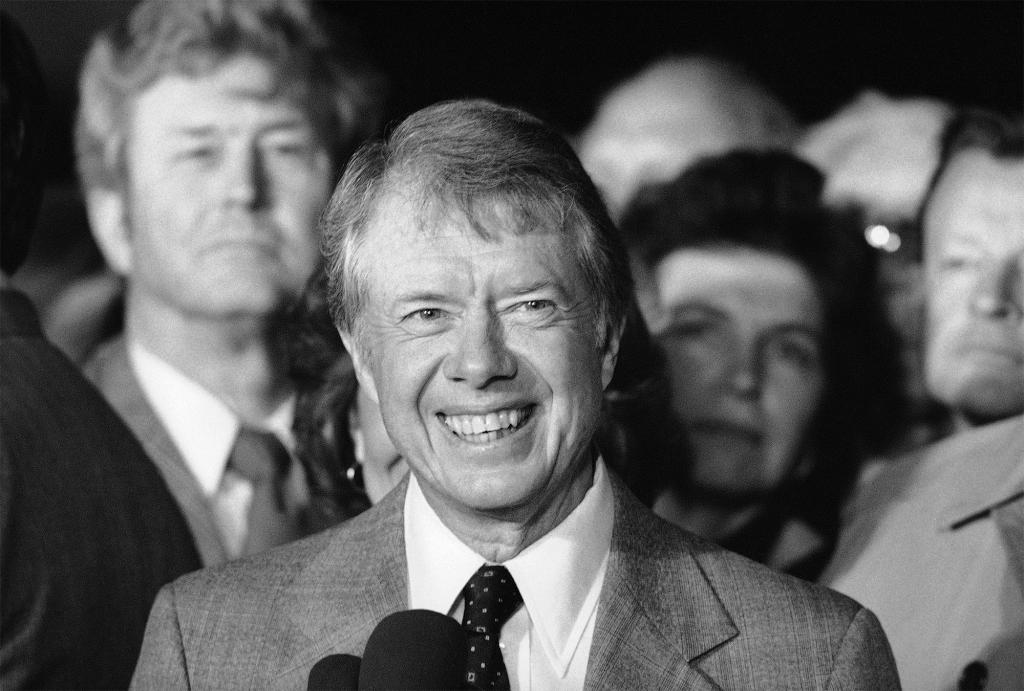Former President Jimmy Carter, a figure often associated with honesty and integrity, held a nuanced perspective on the existence of extraterrestrial life and unidentified flying objects (UFOs). A recently revealed off-the-record conversation with NPR’s Scott Simon offers a glimpse into Carter’s thoughtful consideration of this often-debated topic. While acknowledging the possibility of life beyond Earth, Carter expressed a lack of fear, suggesting that if other civilizations existed, they would fall under the same divine plan governing humanity. His belief in a higher power allowed him to contemplate the potential for extraterrestrial life without trepidation, viewing it as part of a larger universal order. He also speculated that any advanced alien civilizations would likely observe Earth discreetly rather than engage in overt contact using large, conspicuous spacecraft.
Carter’s views on UFOs were shaped by his own experience with an unexplained aerial phenomenon. In 1969, while attending a Lions Club supper in Georgia, Carter, along with approximately 25 other witnesses, observed a bright light in the sky. The light approached, changed colors, and then vanished. Despite this firsthand encounter, Carter remained skeptical about the object’s extraterrestrial origins, expressing a belief that it was not a visitor from another planet. This personal experience, coupled with his broader worldview, informed his approach to the topic of UFOs, leading him to favor a cautious and pragmatic perspective. While open to the possibility of life beyond Earth, he remained grounded in his observations and skeptical of extraordinary claims.
Carter’s stance on UFOs extended beyond personal anecdotes and philosophical musings. During his 1976 presidential campaign, he made an unprecedented promise to disclose all government information on UFOs to the public. This commitment reflected his commitment to transparency and open government. While the extent to which Carter fulfilled this promise remains a subject of debate among UFO enthusiasts and researchers, his willingness to address the topic openly distinguished him from other political figures. This openness, coupled with his personal UFO sighting, solidified his unique position in the history of UFO discourse.
Carter’s legacy regarding UFO disclosure is complex and multifaceted. While he released a significant volume of government documents related to UFOs, some argue that he didn’t fully deliver on his campaign promise. The interpretation of his actions varies, with some believing he was constrained by national security concerns, while others suggest he may have been influenced by undisclosed factors. Despite these differing interpretations, Carter’s willingness to engage with the UFO topic publicly and his commitment to transparency set a precedent that has yet to be matched by subsequent administrations. This legacy of openness, even if incompletely realized, cemented his role as a significant figure in the ongoing discussion surrounding UFOs and government transparency.
Adding another layer of intrigue to Carter’s views on UFOs is the account of actress Shirley MacLaine, a personal friend of the former president. MacLaine claimed that Carter privately expressed stronger beliefs about extraterrestrial life and UFOs than he publicly acknowledged. She recounted conversations where Carter allegedly confirmed the existence of extraterrestrial spacecraft and their occupants. These alleged private conversations, if accurate, suggest that Carter may have held more conviction regarding extraterrestrial visitation than he conveyed in public statements. The discrepancy between Carter’s public pronouncements and MacLaine’s account further complicates the narrative surrounding his beliefs and actions concerning UFOs.
In summary, Jimmy Carter’s perspective on UFOs and extraterrestrial life was a blend of personal experience, philosophical contemplation, and political pragmatism. He acknowledged the possibility of life beyond Earth while remaining skeptical of sensational claims. His own UFO sighting, campaign promise of disclosure, and alleged private conversations with Shirley MacLaine contribute to a complex and intriguing legacy regarding this enigmatic subject. Carter’s approach to the UFO question, marked by a balance of openness and skepticism, continues to fuel discussion and debate among those interested in the possibility of life beyond Earth and the government’s role in revealing what it knows. His unique position as both a witness and a political figure with access to classified information ensures that his perspective remains a significant part of the ongoing conversation surrounding UFOs and extraterrestrial life.

